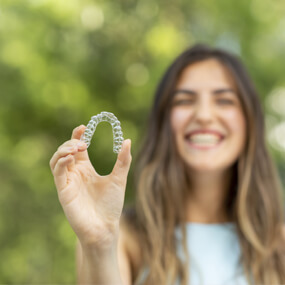Simply Smiling Can Lower Stress and Help Your Heart

There is an old Chinese proverb that goes something like this: Smile to change the world rather than let the world change your smile. There is great wisdom in this ancient advice. Smiling is a choice that benefits others through the positive energy you send out, and it benefits you internally as well. In fact, this is recognized scientifically, and there have many peer-reviewed papers published on the topic.
One of the more recent papers was published in the journal Psychological Science. It details a study performed at the University of Kansas by psychological scientists Sarah Pressman and Tara Kraft. These scientists looked at different types of smiles and studied how those smiles—as well as the awareness of smiling—affected their subjects in the aftermath of a stressful episode.
The scientists wanted to determine if the Chinese proverb mentioned in the opener, as well as old adages like grin and bear it had actual scientific merit. In other words, does smiling after having dealt with something stressful have tangible health benefits?
There are two basic types of smiles: standard and genuine. Standard smiles involve the muscles surrounding the mouth. Genuine—also called Duchenne—smiles involve those mouth muscles but also the muscles surrounding the eyes. Previous scientific research has demonstrated that smiling can alter emotions and that positive feelings can have health benefits during periods of stress. But Pressman and Kraft wanted to manipulate the smiling in order to see whether if choosing to smile and having an awareness of that choice made a difference in the benefits.
The study encompassed 169 participants organized into three groups, and there were two phases: training and testing. Each of the three groups had a distinct training phase in which the members were instructed to hold a particular facial expression. They did this by gripping chopsticks in their teeth in a particular way in order to achieve a certain standard or Duchenne smile. Half of each group was told they were smiling. The chopsticks were integral because they forced the other half to smile without awareness of what the researchers were trying to achieve.
The testing phase involved multitasking activities, which were designed to be stressful, but the participants were not aware of that goal. One activity involved looking at the reflection of a multi-angle shape in a mirror and tracing that shape using the non-dominant hand. The second activity was simpler: submerge a hand in ice water. During both activities, participants gripped chopsticks in their teeth as they had been instructed during the training phase. Heart rates and subjective stress levels were recorded.
The results supported the theory that smiling makes a difference. The participants who smiled—particularly those who held Duchenne smiles—had lower heart rates and lower self-reported stress levels than those who held neutral facial expressions. Participants who were not told explicitly to smile but were in effect smiling also reported a positive effect but not as much as those who knew.
The point of the age-old wisdom and the results of this research is that people can reduce the response to stress by smiling, and it does not matter whether you are actually happy. Now that you know that grin and bear is scientifically supported, you can force a smile the next time you are in a long line at the DMV.
Smile Wider and More Often
Smiling is often a choice, but you will be inclined to smile more often if you have an attractive smile that fills you with confidence. Jeffrey D. Clark, DDS, is a leading cosmetic dentist who has helped many patients achieve and maintain beautiful, beaming smiles. Schedule your smile makeover consultation with Dr. Clark today. Call Scottsdale Cosmetic Dentistry Excellence at 480 585 1853.




